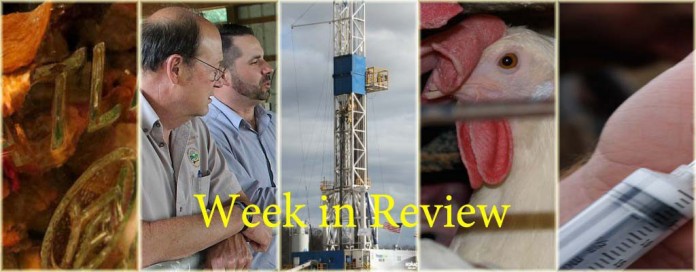Here are this week’s top stories from Farm and Dairy:
1. Preserve the harvest: Food dehydration
As an alternative to canning and freezing, dehydration is an efficient way to preserve ripe fruits, mature vegetables and herbs from your garden.
Online columnist Ivory Harlow explains that the sun or an oven can dehydrate food, but a food dehydrator may be the best option because of constant air flow and the ability to control temperatures. Dehydration doesn’t require salt or other preservatives, and when foods are dried at low temperatures, vitamins and minerals are preserved.
2. Ohio ag director highlights state’s dairy industry
On July 1, Ohio Department of Agriculture Director David Daniels both the manufacturing and production sides of the state’s dairy industry. Daniels visited Superior Dairy and Clardale Farms. Clardale Farms sells milk to Superior Dairy, a fifth generation milk processor that manufactures its own bottles and makes manufactured products like sour cream and ice cream.
Overall, Daniels said he is proud of Ohio’s dairy industry and the jobs it creates, both directly and indirectly.
3. Marcellus and Utica shale update: Permitting slows in some counties, soars in others
During the month of June, the Ohio Department of Natural Resources issued only 34 drilling permits, while Pennsylvania issued 192 permits for unconventional wells.
In Ohio, the most permits were issued in Harrison County, with Columbiana County coming in a close second. Carroll County and Belmont County each received permits as well. In Pennsylvania, drillers in Bradford County received 28 new permits, bringing the total to 169 for 2015 so far. Thirty-eight permits were issued to drillers in the Marcellus Shale region of West Virginia during June.
4. USDA readies for threat of more avian influenza
Although highly pathogenic avian influenza is declining, the disease could reemerge as fall migration of birds picks up. Over the past few weeks, the disease has slowed down in the Midwest and western states, but so far it has affected 48 million birds.
So far, more than $500 million has been allocated for fighting the bird flu. Biosecurity has increased and producers have taken steps to stop further spread of the disease in order to protect states’ economies as well as producers and consumers.
5. Antibiotic resistance not as simple as some think
According to the World Health Organization, the world might experience a time when antibiotics are no longer effective if action is not taken now.
To preserve the benefits of infection-fighting medicines, people should keep vaccinations up to date, wash hands and only use antimicrobial drugs as directed by a quality health professional. Veterinary medical professionals should oversee antimicrobial use in animals.










